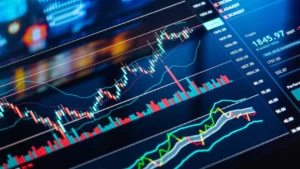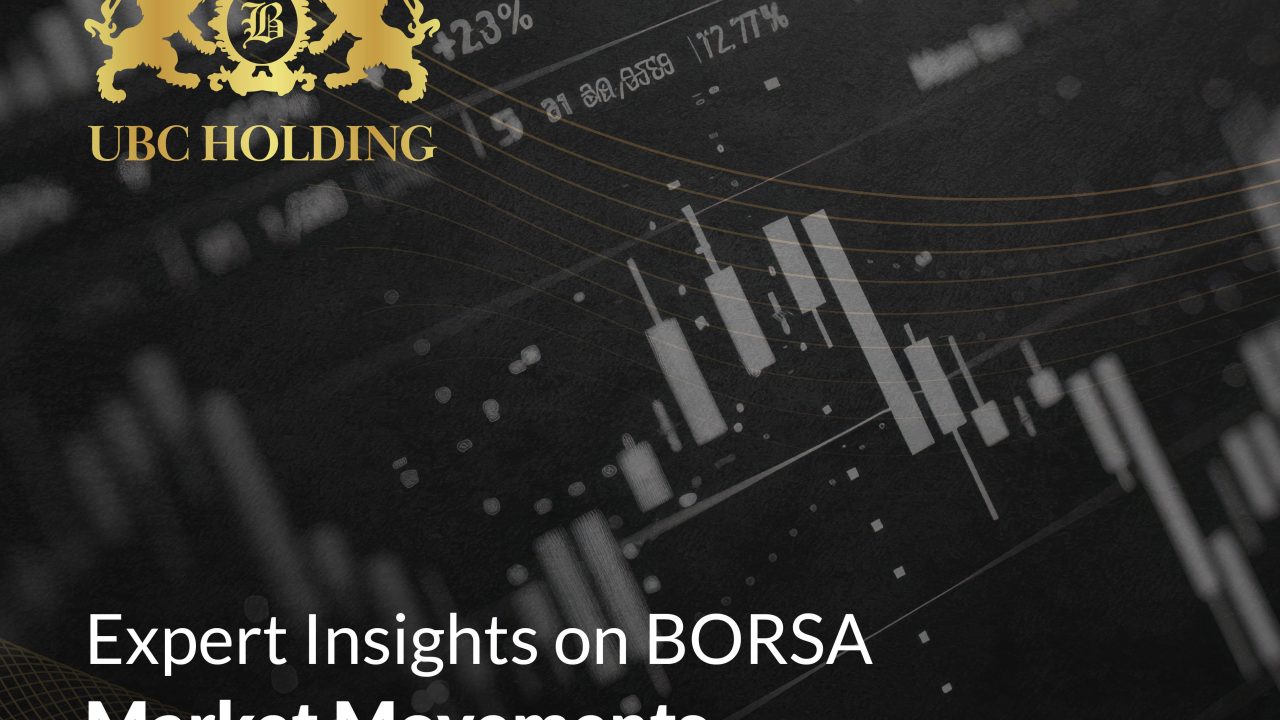The BORSA Market, the cornerstone of Turkey’s financial sector, plays a pivotal role in the nation’s economy. From fluctuations in stock prices to shifts in trading volumes, understanding the dynamics of the BORSA is essential for investors and analysts alike. This article delves into expert insights on BORSA Market movements, offering a comprehensive analysis of its past trends, current status, and future projections.
The Foundation of the BORSA Market
The BORSA, also known as Borsa İstanbul, is Turkey’s primary securities exchange. It was established in 1985 and has since become a hub for trading stocks, bonds, and other financial instruments. The BORSA is characterized by its robust infrastructure, regulatory framework, and a wide array of listed companies. This foundation has paved the way for its growth and resilience in the face of global economic challenges.
Historical Trends in the BORSA Market

To understand current and future BORSA Market movements, it’s crucial to look at historical trends. Over the past few decades, the BORSA Market has experienced significant milestones, including periods of rapid growth and occasional downturns.
The 1990s: A Decade of Expansion
The 1990s were marked by substantial growth in the BORSA. Economic liberalization policies, increased foreign investment, and privatization efforts fueled this expansion. The market witnessed a surge in trading volumes and the listing of numerous companies. However, this decade also saw volatility due to political instability and economic crises.
The 2000s: Stability and Modernization
The early 2000s brought a phase of stability and modernization for the BORSA. Reforms in the banking sector, improvements in corporate governance, and technological advancements contributed to a more transparent and efficient market. The introduction of electronic trading systems further enhanced market accessibility and liquidity.
The 2010s: Resilience Amid Global Challenges
The BORSA Market continued to grow in the 2010s, despite facing global economic challenges such as the Eurozone crisis and geopolitical tensions. Diversification of listed companies, increased participation of institutional investors, and strategic partnerships with other global exchanges bolstered the market’s resilience.
Current Status of the BORSA Market
Today, the BORSA Market stands as a vital player in the global financial landscape. It boasts a diverse range of sectors, including finance, manufacturing, technology, and energy. Let’s explore some key aspects of the current BORSA.
Market Performance and Indices
The BORSA Market’s performance is often gauged by its primary indices, such as the BIST 100, BIST 30, and BIST Financials. These indices reflect the overall health of the market and provide insights into sector-specific movements. In recent years, the BORSA Market has shown resilience, with steady growth in its indices, despite occasional fluctuations.
Trading Volumes and Liquidity
One of the strengths of the BORSA is its high trading volumes and liquidity. The market’s accessibility to both domestic and international investors contributes to this liquidity. Additionally, the presence of advanced trading platforms and regulatory oversight ensures a fair and transparent trading environment.
Key Players and Sectors
The BORSA Market hosts a diverse array of companies, ranging from large conglomerates to small and medium-sized enterprises. Key sectors include banking, telecommunications, construction, and consumer goods. The performance of these sectors often influences overall market movements.
Expert Insights on BORSA Market Movements

Understanding BORSA movements requires a blend of technical analysis, fundamental analysis, and expert insights. Here, we gather perspectives from leading market analysts and financial experts.
Technical Analysis: Charting the Course
Technical analysis involves studying price charts, trading volumes, and other market data to predict future movements. Experts often use various tools such as moving averages, relative strength index (RSI), and Bollinger Bands to analyze trends. According to technical analysts, the BORSA Market has shown consistent patterns that suggest potential growth opportunities.
Fundamental Analysis: Evaluating Market Fundamentals
Fundamental analysis focuses on evaluating the intrinsic value of listed companies by analyzing their financial statements, management quality, and industry position. Experts believe that the BORSA Market’s fundamentals remain strong, with many companies showing robust earnings growth and sound financial health.
Macroeconomic Factors: The Bigger Picture
Macroeconomic factors such as GDP growth, inflation rates, and interest rates significantly impact the BORSA Market. Economic analysts emphasize the importance of monitoring these indicators to understand market movements. Currently, Turkey’s economic policies and geopolitical developments are key drivers of the BORSA Market’s direction.
Sentiment Analysis: Gauging Investor Sentiment
Investor sentiment plays a crucial role in market movements. Sentiment analysis involves assessing the mood of market participants through surveys, news sentiment, and social media trends. Recent sentiment analysis indicates a cautious but optimistic outlook among investors regarding the BORSA Market.
Future Projections for the BORSA Market

Looking ahead, experts have varying projections for the BORSA Market. While predicting exact movements is challenging, several trends and factors are likely to shape the market’s future.
Technological Advancements
Technology continues to transform the BORSA Market. The adoption of blockchain, artificial intelligence, and algorithmic trading is expected to enhance market efficiency and transparency. Experts predict that these advancements will attract more investors and improve overall market performance.
Sustainability and ESG Investing
Environmental, Social, and Governance (ESG) investing is gaining traction globally, and the BORSA Market is no exception. Companies with strong ESG practices are likely to attract more investors, driving market growth. Experts emphasize the need for companies to prioritize sustainability to remain competitive.
Global Economic Trends
Global economic trends, including trade relations, commodity prices, and foreign exchange rates, will influence the BORSA Market. Analysts highlight the importance of staying informed about global developments to make informed investment decisions.
Regulatory Changes
Regulatory changes can have a significant impact on the BORSA Market. Future reforms aimed at enhancing market transparency, protecting investor rights, and promoting fair competition will be crucial. Experts suggest that proactive regulatory measures will bolster investor confidence and market stability.
Strategies for Investing in the BORSA Market

Investing in the BORSA Market requires careful planning and strategy. Here are some expert-recommended strategies for potential investors.
Diversification
Diversification is key to managing risk in the BORSA . By spreading investments across different sectors and asset classes, investors can mitigate potential losses. Experts recommend a balanced portfolio that includes a mix of stocks, bonds, and other financial instruments.
Long-Term Perspective
Adopting a long-term perspective is essential for navigating the BORSA’s volatility. While short-term fluctuations are inevitable, focusing on long-term growth potential can yield better returns. Experts advise investors to remain patient and avoid making impulsive decisions based on short-term market movements.
Staying Informed
Keeping abreast of market news, economic indicators, and company performance is crucial for making informed investment decisions. Subscribing to financial news outlets, attending market seminars, and consulting with financial advisors can provide valuable insights.
Risk Management
Effective risk management involves setting clear investment goals, defining risk tolerance levels, and implementing stop-loss strategies. Experts stress the importance of regularly reviewing and adjusting investment portfolios to align with changing market conditions.
Conclusion
The BORSA Market, with its rich history, diverse sectors, and dynamic nature, offers abundant opportunities for investors. Understanding its movements requires a blend of technical and fundamental analysis, macroeconomic insights, and investor sentiment. By staying informed and adopting sound investment strategies, investors can navigate the BORSA effectively and capitalize on its potential.
As Turkey continues to evolve economically and politically, the BORSA will remain a focal point for investors seeking growth and diversification. By leveraging expert insights and staying attuned to market trends, investors can make informed decisions and achieve their financial goals.
Whether you are a seasoned investor or a newcomer to the BORSA this comprehensive analysis provides valuable insights to guide your investment journey. Stay vigilant, embrace innovation, and remain resilient—these principles will serve you well in the dynamic world of the BORSA.

